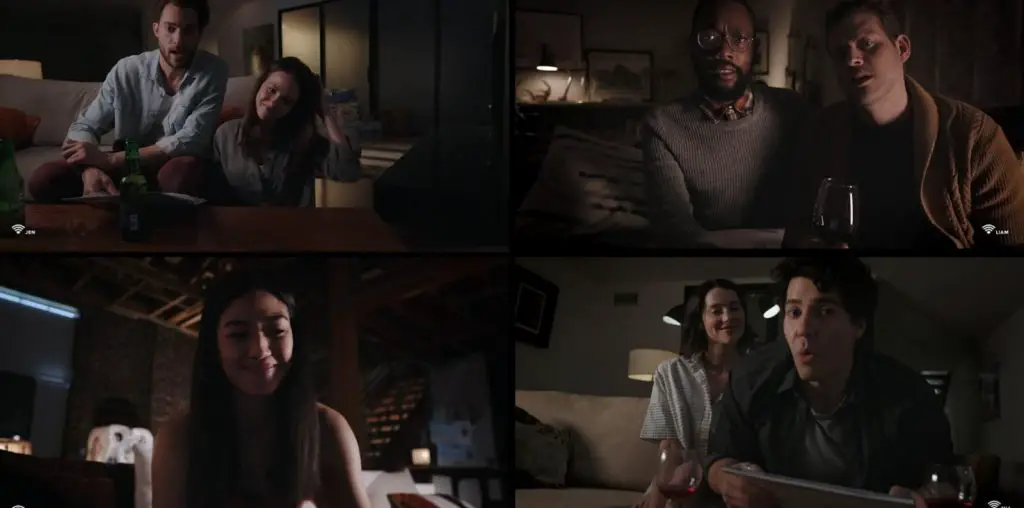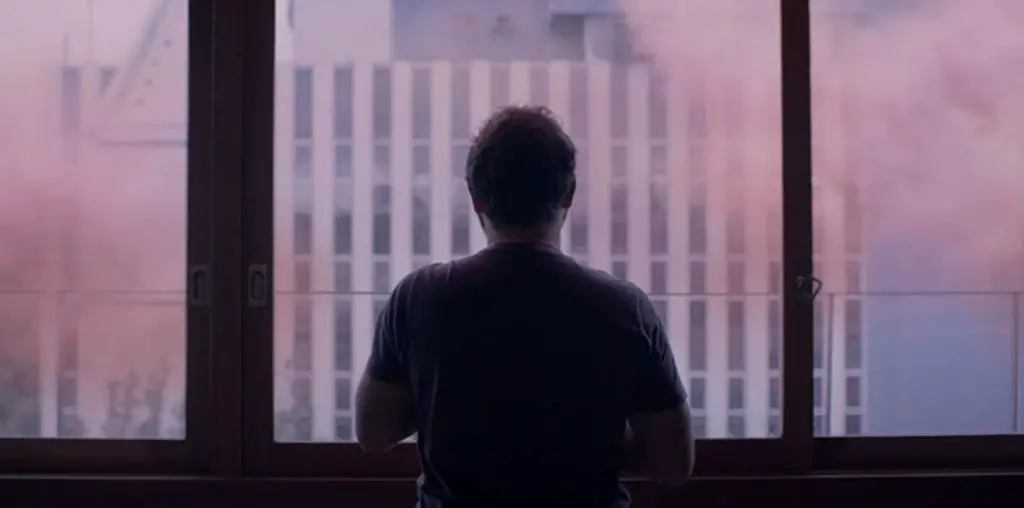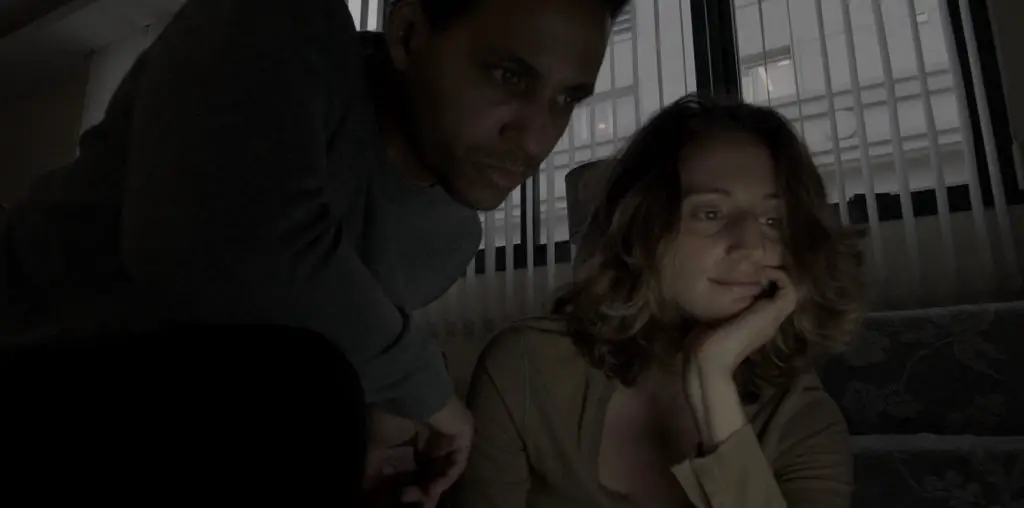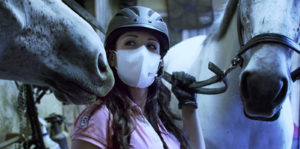
The Death of Us reflects the COVID-19 era in both subject matter and style. Director Yonash Breneman’s debut feature film is not only about the pandemic, but, with its limited cast of characters confined to a single location, was obviously also shot under pandemic-imposed conditions. This isn’t nearly the first such production about the coronavirus made to date, nor is it likely to be the last. So, with that in mind, maybe it’s about time we came up with a name for this tremendously timely new genre. Here’s my thought: COVID-core. We’ll see if that catches on.
The movie, written by Breneman and Anthony Theodorakos, serves as a quintessential example of the genre, whatever you want to call it. The rapidly spreading virus that grinds its characters’ everyday lives to a halt is, notably, never referred to by name. Still, Breneman litters the film’s early stretches with familiar signifiers: toilet paper shortages, admonitions to “stay safe,” surgical masks, and six-foot social distancing. The filmmaker even includes soundbites from Donald Trump and Anthony Fauci on the soundtrack.
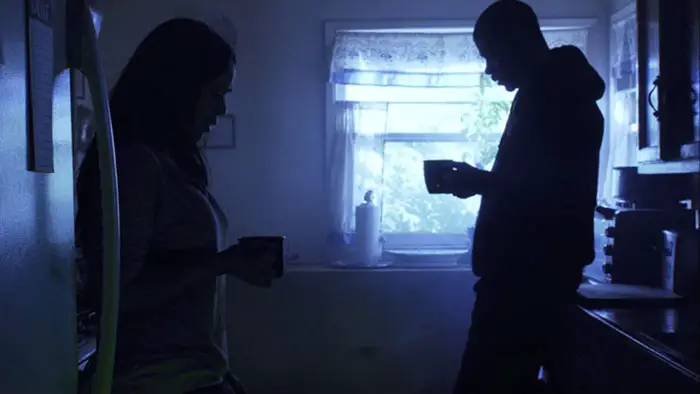
“…Katie and Morgan’s brief excursions into the world become increasingly fraught with panic…”
That’s the unfortunately recognizable world into which The Death of Us introduces its two principal characters. Katie (Dana Schick) is a fitness trainer struggling to maintain her dwindling roster of clients via ZOOM workouts. Her friend Morgan (Ahku) is an auto mechanic whose business has dried up now that potential customers no longer find themselves driving anywhere. The two are not a romantic couple, but they plan to ride the crisis out under the same roof while awaiting the return of Devin (Yonash Breneman) – Katie’s fiancé and Morgan’s best friend, a doctor treating patients on the frontlines of the pandemic.
For a while, at least, Breneman sticks to scenes that carry the relatable sting of recent collective memory. As Katie and Morgan’s brief excursions into the world become increasingly fraught with panic and paranoia, they learn to cope with the day-to-day reality of living “alone together.” They play a game of drunken charades to pass a miserable, sleepless night, make thrown-together meals made up of whatever unappetizing fare can be scrounged up in the kitchen, and both Katie and Morgan spout off dubious but necessary affirmations that things will get better soon. It recalls, for all intents and purposes, what we all went through in the spring of 2020, and we settle in for a low-key lockdown drama dotted with moments of perceptive, if obvious, COVID nostalgia (or anti-nostalgia?).
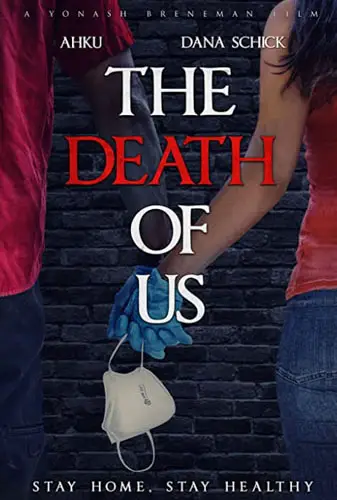
"…spirals toward an ending that's bound to be divisive."
